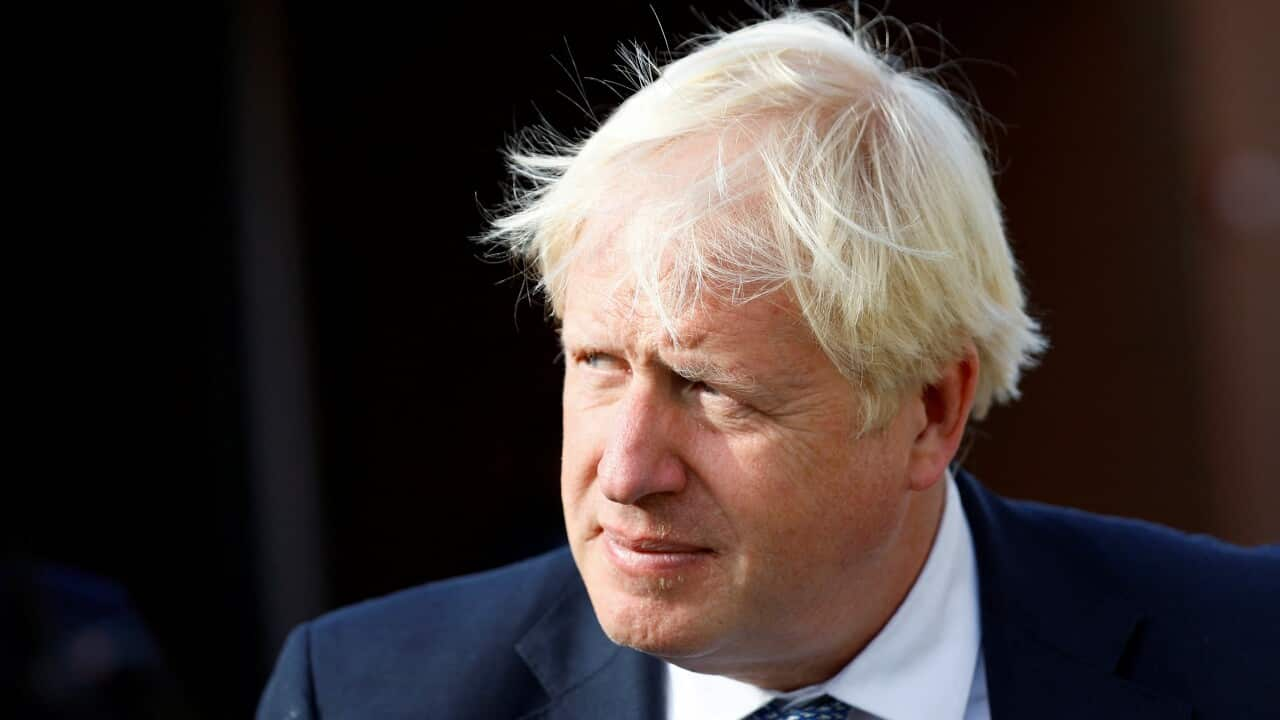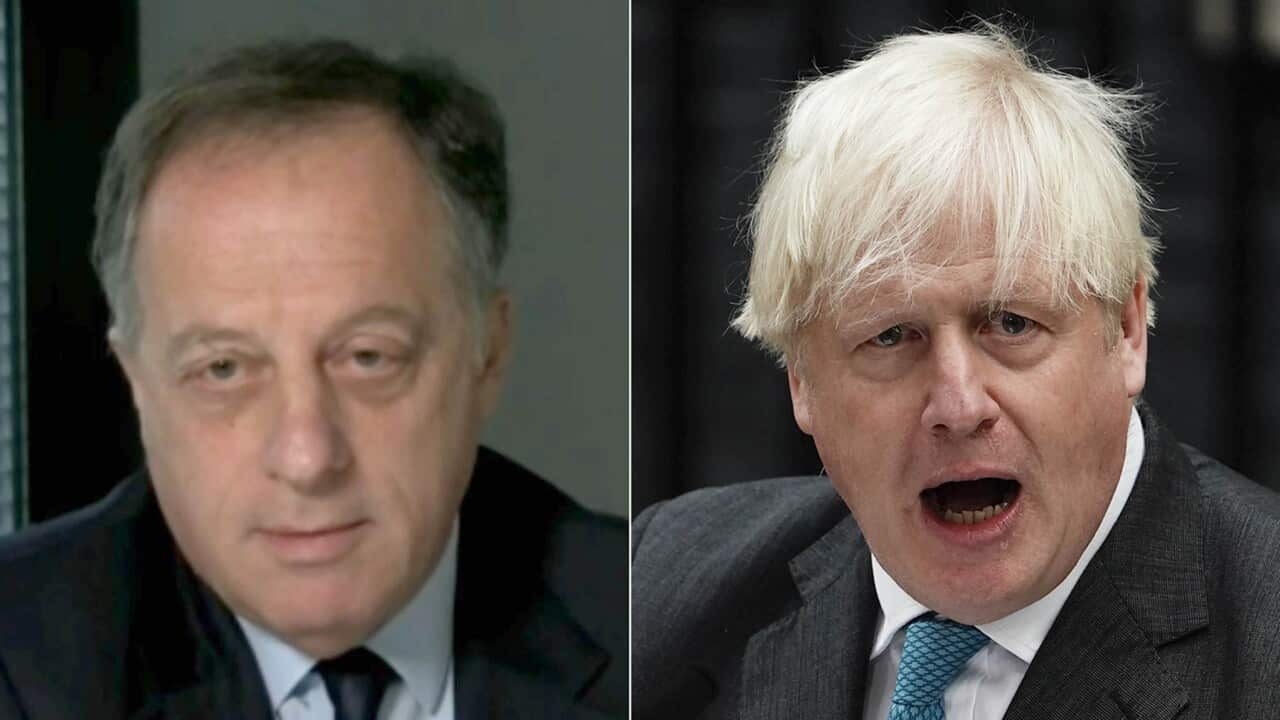Key Points
- Former UK PM Boris Johnson says he is leaving parliament, "at least for now".
- The move will trigger a by-election in his marginal seat.
- It follows a report into whether he misled the House of Commons over parties held at Number 10 during COVID-19 lockdowns.
Former British prime minister Boris Johnson has abruptly quit as a member of parliament in a furious protest against MPs investigating his conduct, reopening divisions in the ruling Conservative Party ahead of national elections.
What led to Boris Johnson's resignation?
Mr Johnson had been under investigation by a parliamentary inquiry looking into whether he misled the House of Commons about lockdown-breaking parties in Downing Street during the Covid-19 pandemic.
After Mr Johnson received a confidential letter from the committee, he accused MPs on the committee investigating him of acting like a "kangaroo court" and being determined to end his political career.
"I am being forced out by a tiny handful of people, with no evidence to back up their assertions, and without approval even of Conservative Party members let alone the wider electorate," Mr Johnson said in a statement.
Parliament's privileges committee - the main disciplinary body for MPs - could have recommended Mr Johnson be suspended from parliament.
What happens next?
If the suspension is for more than 10 days, voters in his constituency can demand he stands for re-election to continue as their representative.
Mr Johnson hinted that he planned to make a return to frontline politics, declaring he was leaving parliament "for now".
But the decision to resign might be the end of his 22-year political career, where he rose from parliament to mayor of London and then built a profile that tipped the balance of the 2016 European Union referendum in favour of Brexit.
Mr Johnson, whose premiership was cut short in part by anger in his own party and across Britain over COVID rule-breaking lockdown parties in his Downing Street office and residence, said the committee had "not produced a shred of evidence" that he deliberately or knowingly misled parliament.
"I am not alone in thinking that a witch hunt is underway to take revenge for Brexit and ultimately to reverse the 2016 referendum result," he said.
Who is leading the investigation?
"My removal is the necessary first step, and I believe there has been a concerted attempt to bring it about."
The investigation is chaired by a senior Labour Party MP but the majority of committee members are Conservatives.
A parliamentary spokesman said the committee had no immediate reaction to Mr Johnson's statement.
The resignation will trigger a by-election for his constituency in west London.
It is the second in a day for Prime Minister Rishi Sunak after an ally of Mr Johnson, Nadine Dorries, announced she would step down.
Angela Rayner, deputy leader of the Labour Party, said: "The British public are sick to the back teeth of this never-ending Tory soap opera played out at their expense."
Who is Boris Johnson?
Mr Johnson came to power almost four years ago, promising to deliver Brexit and rescue it from the bitter wrangling that followed the 2016 referendum.
He shrugged off concerns from some fellow Conservatives that his narcissism, failure to deal with details, and reputation for deceit meant he was unsuitable.
Some Conservatives enthusiastically backed the former journalist and London mayor, while others, despite reservations, supported him because he was able to appeal to parts of the electorate that usually rejected their party.
That was borne out in the December 2019 election.
But his administration's combative and often chaotic approach to governing and the scandals exhausted the goodwill of many of his MPs.
Opinion polls show he is no longer popular with the public at large.










